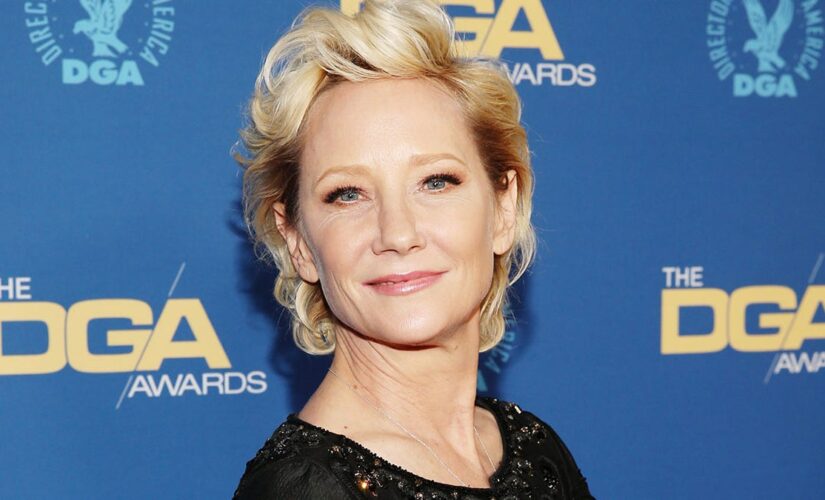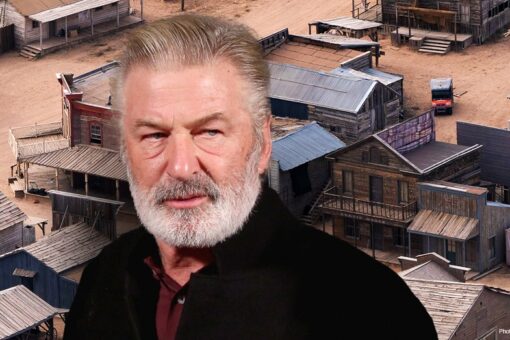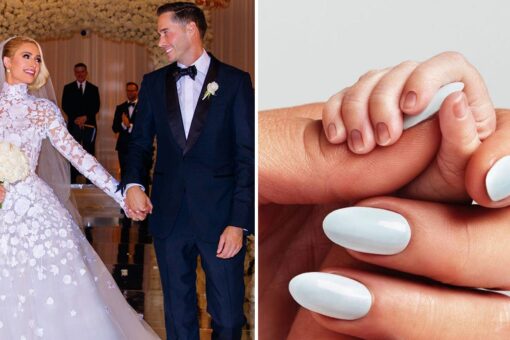NEWYou can now listen to Fox News articles!
Anne Heche had almost completed her new memoir “Call Me Anne” prior to her death at the age of 53 following a fiery car crash last month.
In an interview with Fox News Digital, editor Rene Sears, who worked with the late actress on her follow-up to her 2001 biography “Call Me Crazy”, shared details about the memoir, which will be released in January 2023.
“She was so enthusiastic about the book, and she really had no ego about the work,” Sears said of Heche, who she described as “very easy to work with” and open to rewrites.
Anne Heche had almost completed her new memoir “Call Me Anne” prior to her death at the age of 53.
(Jesse Grant)
“We’d worked on it so much with her and then the final pass, of course, has been without her,” she said.
ANNE HECHE’S SON PAYS TRIBUTE AFTER MOTHER’S DEATH: HOPEFULLY MY MOM IS FREE FROM PAIN’
Per a synopsis provided by publisher Simon & Schuster, “Call Me Anne” will feature the Emmy award-winner’s personal anecdotes of her life and rise to stardom.
The memoir delves into Heche’s history of childhood sexual abuse, her highly publicized relationship with Ellen DeGeneres and its effect on her career, her relationship with on-set mentor Harrison Ford, her encounter with Harvey Weinstein, her relationship with God and her journey to love herself.
Sears explained that the “Donnie Brasco” star had written the first draft longhand in journals and the experience had helped her process some of her past traumas.
“I think most of it was kind of her processing and her approaching her creativity as a way to think more deeply about what had happened to her and how to move past it,” she said.
“And I know that’s what she’s hoping that other people will get out of this book as well,” Sears continued. “It’s a sort of way to creatively examine their own lives and move past whatever trauma or troubles might be affecting them personally.”
Rather than focusing on the minutiae of Heche’s relationship with DeGeneres and their split, Sears said that the actress wanted to address the impact that it had on her career.
Heche was on the verge of becoming a household name in the late 1990s when she and DeGeneres went public with their same-sex romance. The pair were one of the first openly gay couples in Hollywood at a time when society was less accepting.
“After she and Ellen went public with their relationship, she lost a lot of opportunities,” Sears said. “I think she was focused in this book more on the fallout for her career and also the people that she encountered for whom it didn’t matter, which made a big impression on her.”
Editor Rene Sears, who worked with the late actress on her follow-up to her 2001 biography “Call Me Crazy,” shared details about the upcoming memoir.
(Start Publishing)
Harrison Ford, who co-starred with Heche in the 1998 romantic comedy “Six Days, Seven Nights,” served as a mentor to the up-and-coming actress and later supported her after she and DeGeneres made their relationship public.
In Heche’s memoir, Sears revealed that the “Hung” alumna, who she said was a “very funny storyteller”, included a humorous anecdote about meeting Ford for the first time at a reading for their movie.
“She was so excited because ‘Star Wars’ was the first movie that she ever saw in the theater,” Sears recalled. “So she was all excited to tell him how much it had meant to her and how impressed she had been. And then she started talking to him and all the sentences just kind of fell out, and it maybe wasn’t the clearest. And he just looked at her for a beat, and then he said, ‘Don’t ever tell that story again. It makes me look too old.'”
Sears said that Ford became a mentor to Heche and gave her tips on the craft as she made the transition from acting in television and soap operas to starring in major studio films.
In addition to acting as a mentor, Sears explained that Heche was touched that Ford immediately reached out to her after she faced career backlash over her relationship with DeGeneres.
“He reached out, during the midst of all that, when she had just had these deals canceled and said, ‘Yes, I want to work with you and I don’t care about your personal life because you’re a good actress.’ So I think in both of those respects, he meant very much to her.”
Heche said she was blacklisted from the industry after her breakup with Ellen DeGeneres.
(Kurt Krieger/Corbis)
However, Sears said that in a less positive anecdote from her memoir, Heche claimed that the late “Six Days, Seven Nights” director Ivan Reitman had asked her, “Why can’t you be more like Jodie Foster?”
Sears explained, “Because of course, the rumor was that Jodie Foster had also had relationships with women, but it wasn’t public. And I think she felt very deeply, you know, that was a difficult ask for her because she just really wanted to be true to herself and to this relationship.”
CLICK HERE TO SIGN UP FOR THE ENTERTAINMENT NEWSLETTER
According to Sears, Heche, who had previously accused disgraced movie mogul Harvey Weinstein of sexual harassment, “didn’t go into any gory details” about the encounter in her memoir.
“But she definitely has some very spicy things to say about Harvey Weinstein,” Sears added.
Anne Heche said that Harrison Ford served as a mentor to her after they met on the set of their 1998 film “Six Days Seven Nights.”
(Getty Images)
In addition to personal stories and anecdotes, Heche also included creative prompts for readers at the end of each chapter of her book. “She was so enthusiastic about this direction, and she really just wanted to help people as much as she could,” Sears said.
Though publisher Jarred Weisfeld confirmed to Fox News Digital that Heche “dedicated the book to her children,” Sears said she was unaware of what her sons Homer, 20, and Atlas, 13, thought of their mother’s memoir.
“I do know that she only ever spoke very highly of being a mother and of what joy that brought to her life,” Sears said.
CLICK HERE TO GET THE FOX NEWS APP
Though a blood test revealed that Heche had “the presence of drugs” in her system following the horrific car crash that later led to her death, Sears shared that Heche “didn’t talk about drugs or alcohol in the memoir or in any of the conversations I had with her.”
She added, “The trauma she referenced in the book was predominantly the abuse she endured as a child. Substance abuse never came up in our conversations, and the circumstances around her crash were a sad surprise to me.”
Sears said that Heche had wanted her readers to take away an uplifting message from her memoir.
“I think for her, it was that everyone is worthy of hope, of self-examination,” she explained. “Of love and kindness. And yeah, that was basically she would want the reader to know, that they’re worth helping.”




